The ’S’ word
For the first time in an hour, Jochem pauses. “Structure?”, he gasps. “Fuck structure!” Well, following the herd is one thing you could never really accuse …,staat of doing. While it started as Jochem and Julia’s quest to unite (and improve) the worlds of communication and design, it turned into an agency able to work for some of the biggest brands in the world in just about every craft or discipline you could imagine: architecture, event design, graphic design, interior design, product design, the list goes on. Fortunately Julia is able to sum up what …,staat does far more succinctly. “We are the most recent piece of work that we’ve made,” she says. “Whatever someone sees of ours, that’s who we are.”
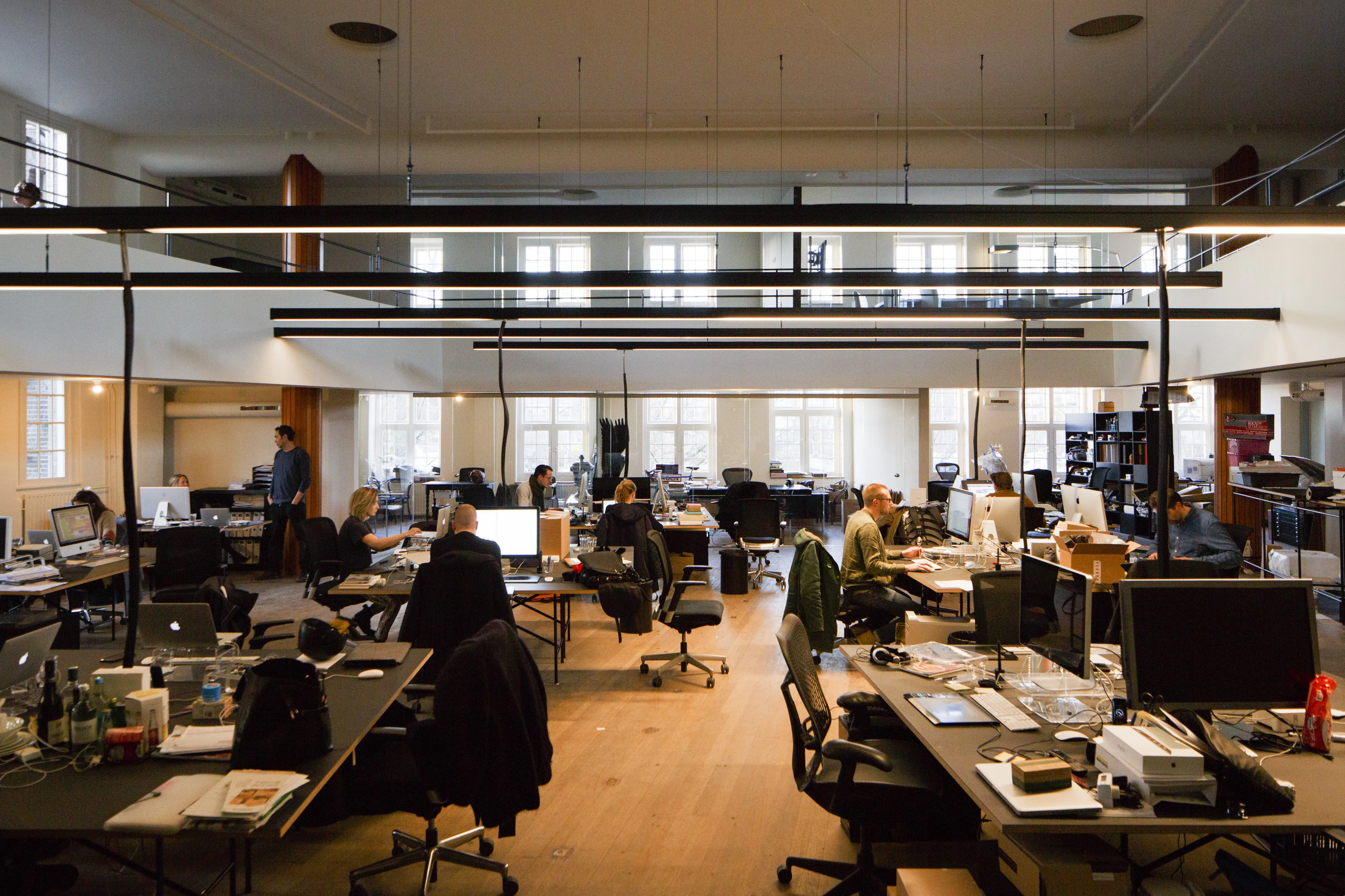
“Sometimes we’re in a pitch with architects, which makes us an architecture firm,” Julia continues. “Sometimes it’s a communication pitch, so then we’re more an ad agency. A few years ago we were doing a big interior project for an international ad agency, while we were also in a pitch against them for a campaign — which we won. Fortunately they thought it was funny, but they couldn’t understand how we were designing their office and winning their business at the same time.”
According to Julia, the explanation (in case the ad agency are still wondering) can be chalked up to a mutual short attention span. “We got bored very quickly, especially when we started out, so after we had done ten books in a row, we said it’s time to do something else — let’s do interiors instead. If anyone asked us to do a book, we said ‘No’ and hung up the phone (in a nice way). We rejected a lot of assignments and commercials to focus on creative work, which enabled us to become who we wanted to be.”
“We are the most recent piece of work that we’ve made. Whatever someone sees of ours, that’s who we are.”
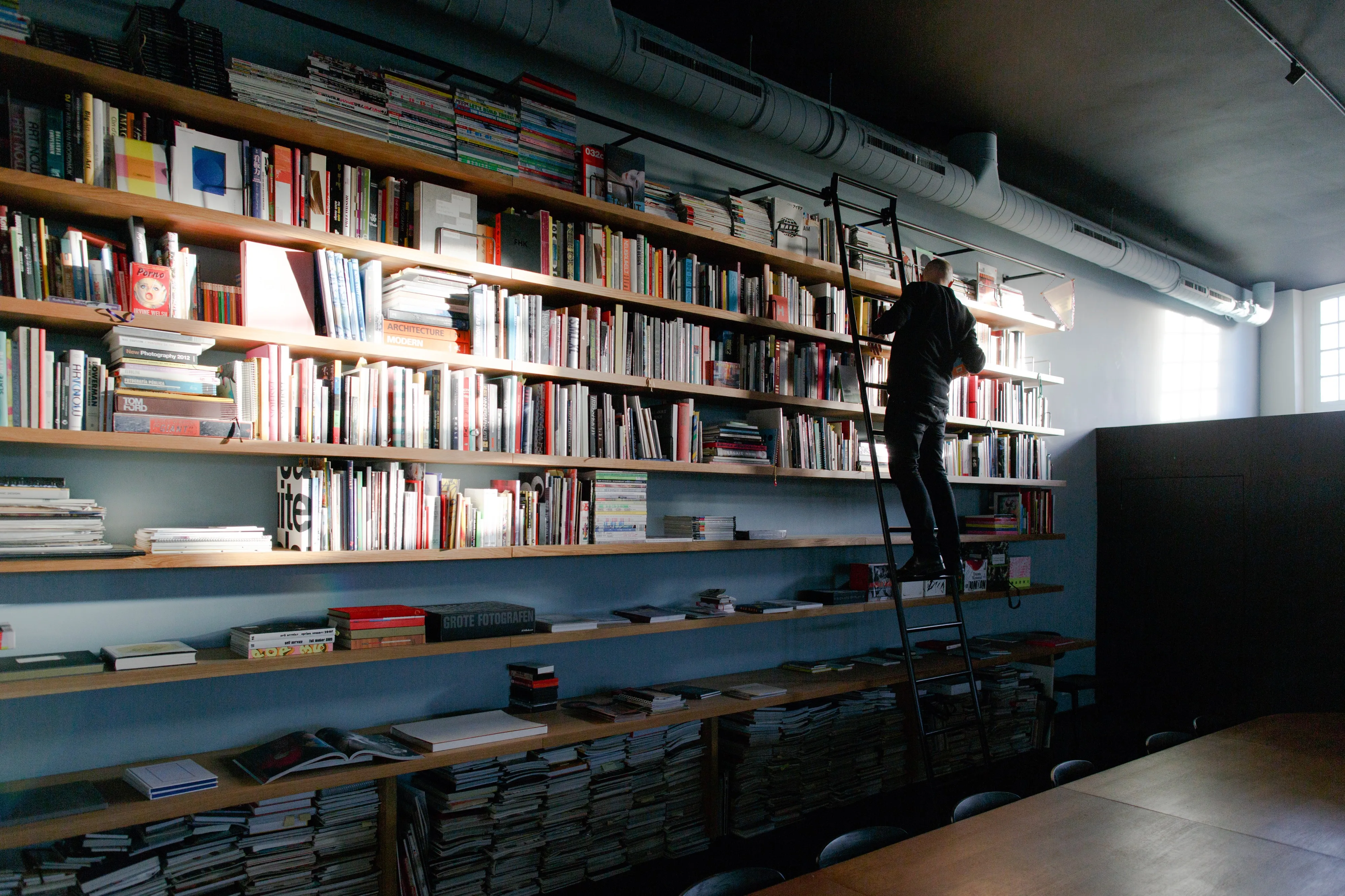
From outsiders to insiders
Not being bound by traditional agency thinking also gave the pair a different perspective on the industry. “Jochem was creative director at Mazzo, a nightclub. I was a drama therapist,” Julia explains. “We weren’t a breakout from a big agency, so we didn’t look at what we’d hated or loved where we’d been before. Instead, we asked ourselves how we wanted to handle creativity and we could form a group of people around us that we can be together with the whole day.”
Which brings us rather neatly to Jochem’s earlier condemnation of structure. It transpires that despite his cursing, …,staat does have some kind of organisation. “We have project managers, we have clients, we have deadlines, which is more than enough,” he concedess. “Generally, we look for freedom instead of structure. All that Scrum bullshit might be perfect for some agencies and certain projects but it’s a totally different way of approaching work that can be the opposite of creativity.”
“We just wanted to feel the excitement of making something new, being nervous in the morning, of not knowing how to do something.”
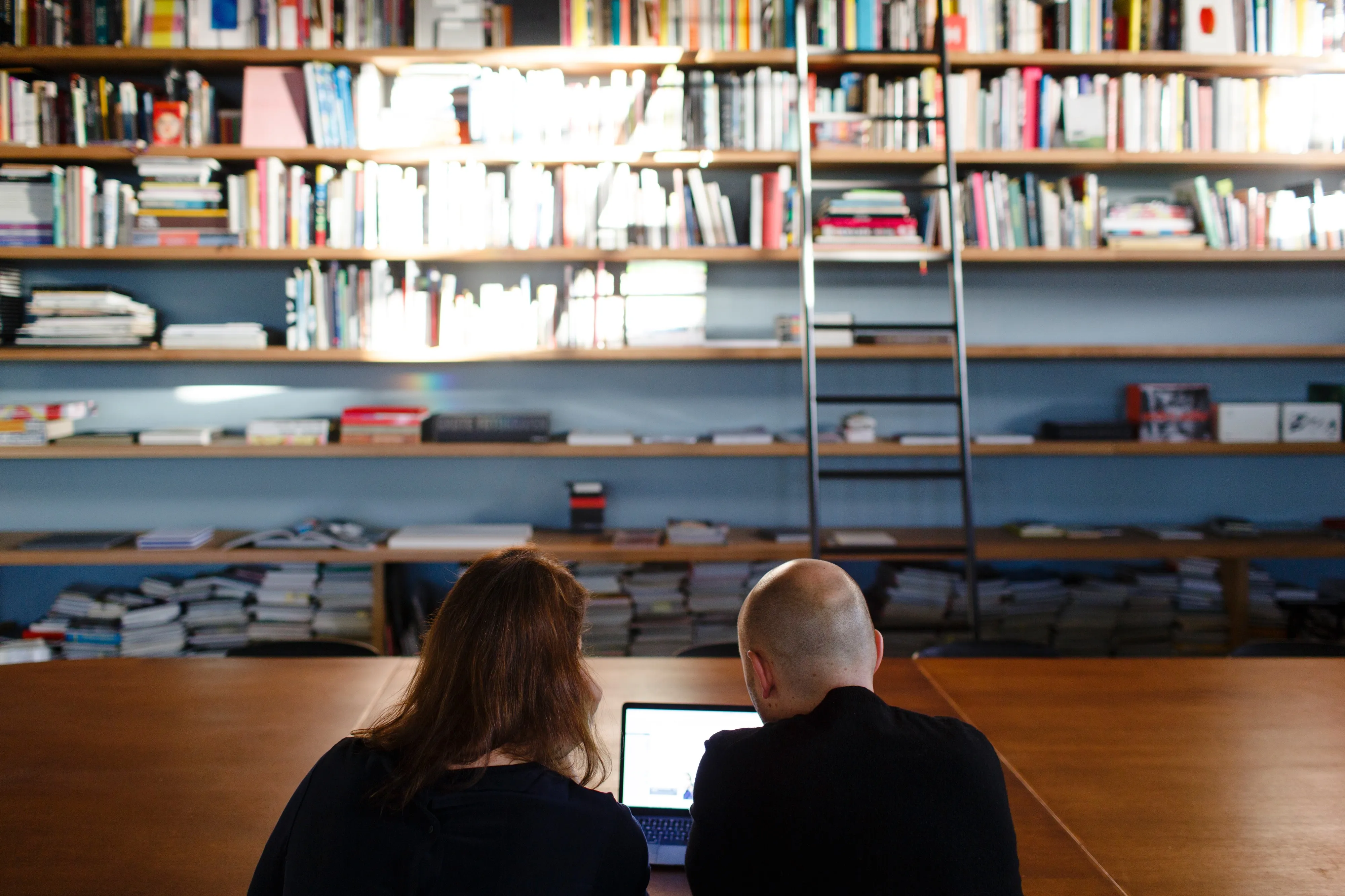
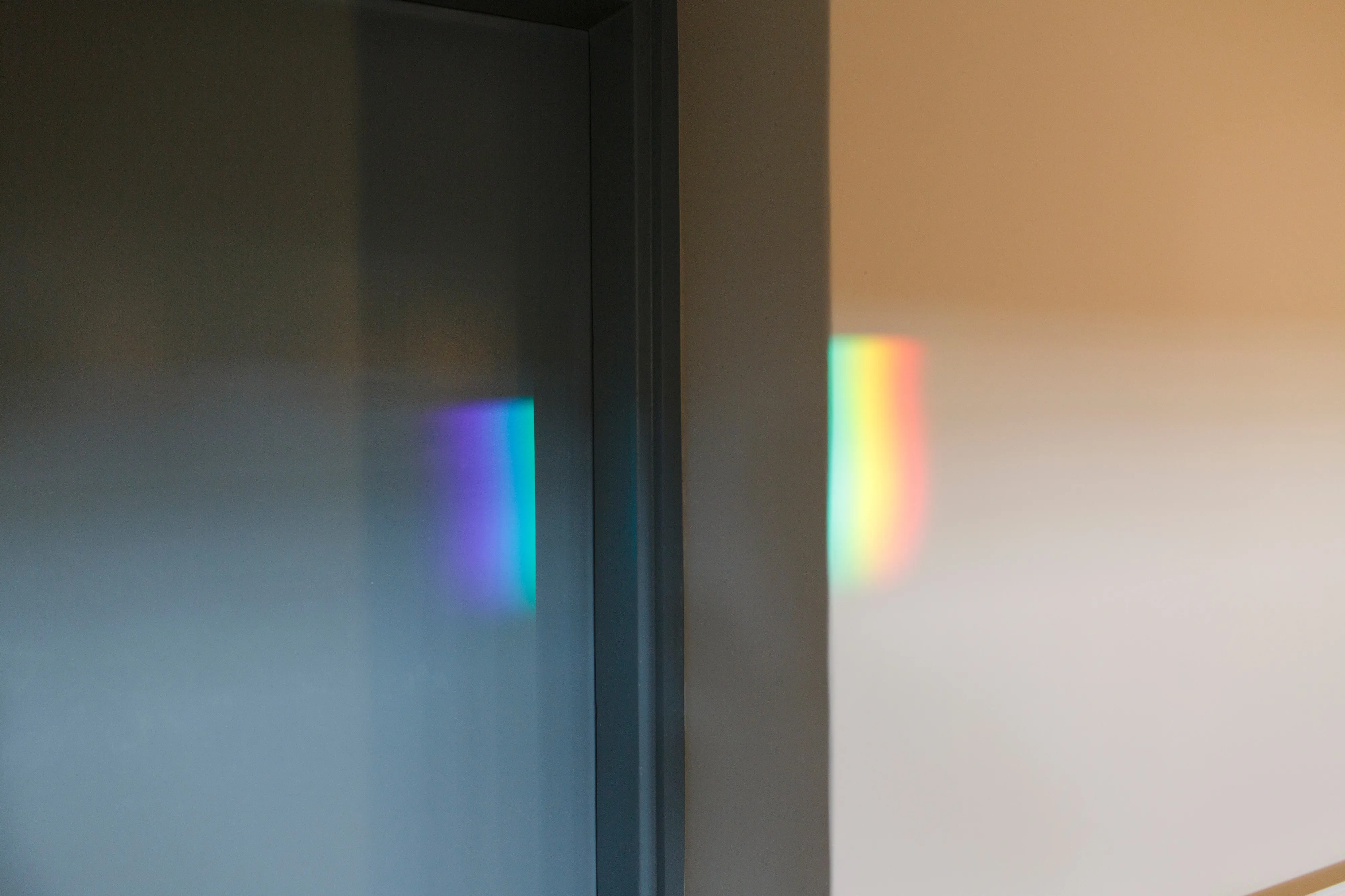
The dynamic duo
At this point Julia jumps into the conversational fray again. After working together for so long, it’s clear that Jochem and Julia have got some kind of mindmeld going on. Despite their wildly differing conversational styles — he rattles out words like a machine gun, she’s much more considered — it’s like to talking to one person. They don’t finish each other’s sentences as much as jump right into the middle of whatever the other person is saying. When asked how they work together, Julia volunteers that most of the time she’s responsible for thinking on an agency level about the future and …,staat’s creative vision) while Jochem dives more in-depth into the creative part of assignments and handles contact with clients. “When I’m stressed, he’s very calm, and vice versa.” So after Jochem has assassinated both structure and scrum, Julia offers a slightly more rational explanation of their policy.
“All the projects running here are so diverse and have different plannings, which makes it impossible to shoehorn them into a standard way of doing things. For example, there was a time we were designing a stamp and a hotel interior at the same time, both of which have completely different rhythms. If you’re an advertising agency then most projects follow the same formula, but we have too many exceptions.”
“Creatives nowadays are increasingly all-round specialists.”
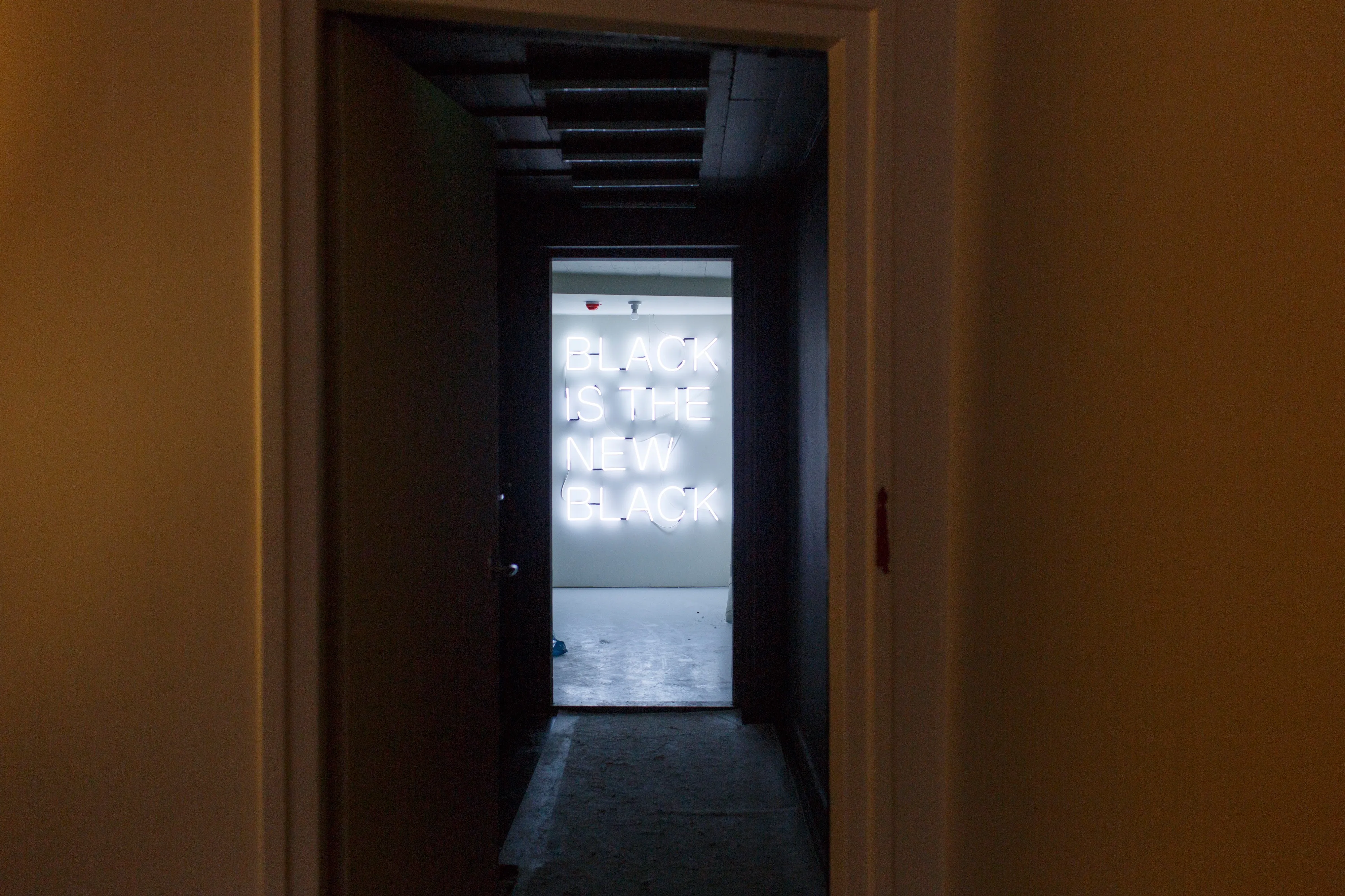
All-round specialists
These exceptions mean that everyone at …,staat needs to be as agile as the agency. Most employees aren’t restricted to a single skill or craft and find themselves working on any project their talent leads them to. “When people come to work here, we look at them holistically,” Julia says. “You’re happier if you’re a complete person than just a position, sitting at your desk and doing that one thing all day. It’s not like if you’re an art director, you need to be able to art direct this and that — maybe you’re also really good at music, and we’ll ask you to compose the soundtrack for a film. But of course there has to be a level of quality too. It’s really nice if you love drawing, but if what you make is ugly, then that’s where we draw the line. That’s not the …,staat level.”
According to Jochem, the key appears to be that term favoured by CV writers everywhere: transferable skills. “Creatives nowadays are increasingly all-round specialists. I hate the term but I love the all-round part. Having said that, we have specialists here too. For architecture projects we have architects, for graphic design we have graphic designers, but the narrative behind one of these projects could come from a strategist, writer or anyone with a strong emotional feeling. We always work in teams, and think it’s more about who you are and what you (and the team) can create rather than the title you have.”
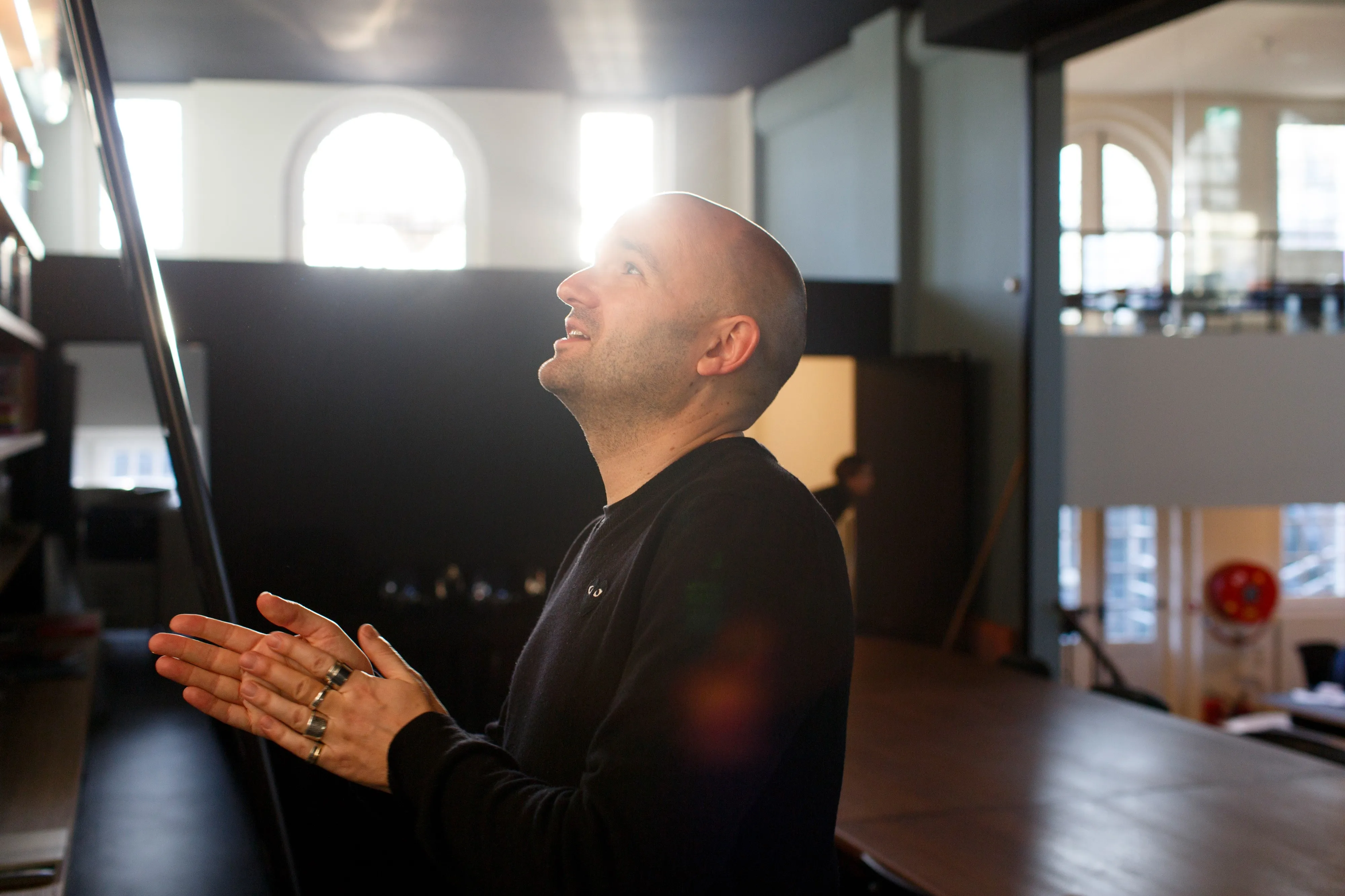

A new era: the NewWerktheater
As for Jochem and Julia themselves, they’re about to enter a new era. Their quest to break new ground has lead them not just to a new location, but something completely different: The NewWerktheater, an old theatre on the Oostenburgergracht, which as well as space for the agency will include an 80-seat restaurant, coffee bar, photo studio, event spaces, gallery and a mini-shop. You could say it’s the logical next step for an agency that keeps on reinventing itself, but not even Julia and Jochem could have predicted that they would be hiring chefs and bar staff. “We never plan the future — we live in the here and now and grab a chance if it comes by.” Both are looking forward to the chance to “play again”.
“We just wanted to feel the excitement of making something new, being nervous in the morning, of not knowing how to do something,” Julia confesses. “After a few years, most people are happy to relax and let their business run smoothly. It would have been easy to just continue as we were, but I think people come here because we offer a stage for them to do different things. Now they can design the NewWerktheater with us: think about what the shop should be like and what goes on the lobby walls. Even better, they don’t have to take the risks themselves, as we’re doing that, but they can be a full part of it. It’s not just our party, it’s for all of …,staat.”
Whether the movement between skills and crafts will be as fluid on the hospitality side as in the agency remains to be seen. “Quite a lot of people have asked to be behind the bar,” Julia laughs. “I don’t know how we’ll go with that, but if you come here for lunch, it’s not like you’ll get a bad sandwich because the copywriter is in the kitchen.”
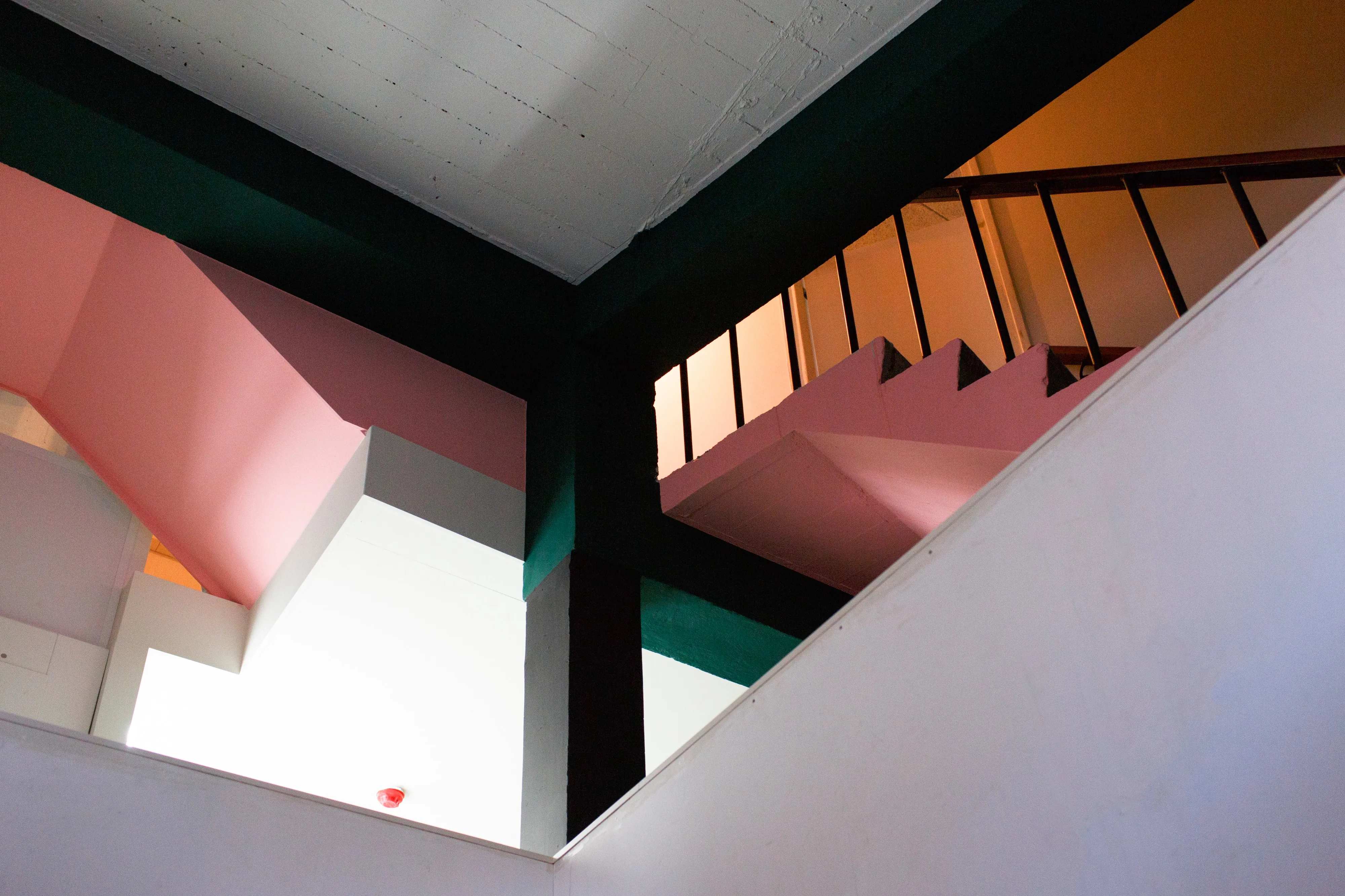
Risk or reward
The creativity of the people in the agency will filter down into the other areas, with book launches, events, parties and other events planned as collaborations between the …,staat and NewWerktheater teams. “We’re aiming for quality, not hype,” says Jochem. “Fear’s a big word, but our biggest concern was that it would become ‘just another agency with a coffee bar’ bullshit hipster hype. That’s not the idea at all, it’s a bigger statement: a place where you can do a photo shoot, enjoy a good meal, get inspired or simply have a coffee while reading a newspaper or a great magazine. That whole philosophy is all part of our creativity as an agency.”
There’s no doubt that this venture is a risk, but it’s one that Jochem sees as more than acceptable for the opportunities it offers to grow as individuals and an agency — even if it means him and Julia taking unexpected roles in the future. “There’s a still a big learning curve within …,staat. If there wasn’t, we should just close the agency and do something new. Then I’ll run the restaurant full-time, and Julia can use her background in drama to concentrate on the theatre.” I’m pretty sure it won’t come down to that, but …,staat being …,staat, it’s impossible to rule anything out.
Interview by Will Georgi
Photography by Jordi Huisman
.webp)
.webp)
.webp)
%20(3).webp)

.png)

